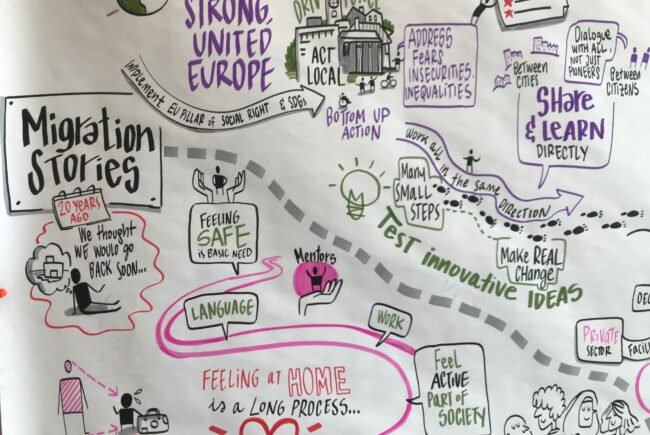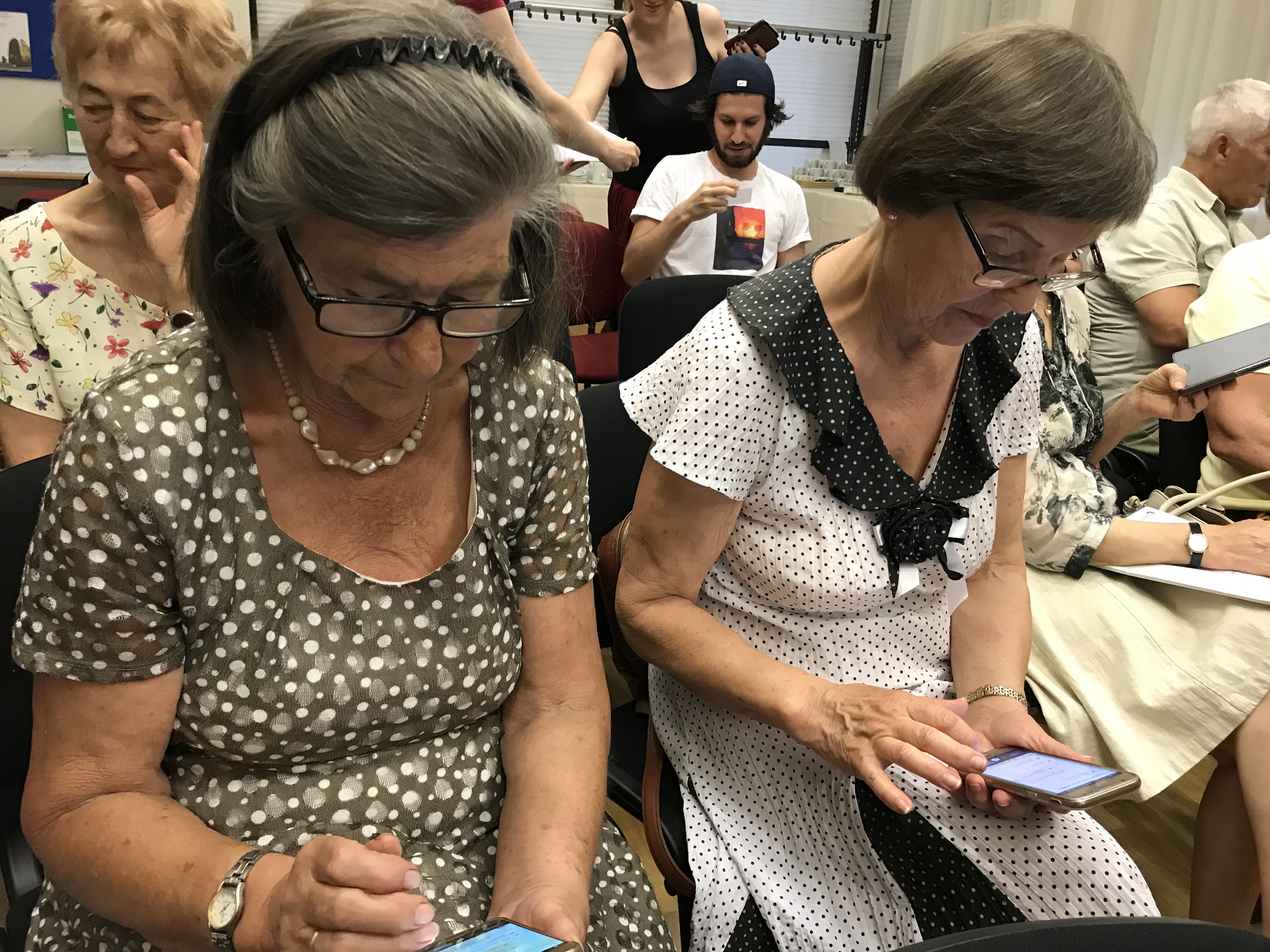

The SVMI project wanted to tackle problems and challenges both elderly people and migrants face. Image: SVMI
The SVMI project wanted to tackle problems and challenges both elderly people and migrants face. Image: SVMI
Both elderly people and migrants are at risk of becoming isolated in many societies. With the right training, seniors can use their life experience and help newcomers to integrate into the host country.
Volunteering can be a powerful tool in tackling the social exclusion that both elderly people and migrants often experience.
‘Senior Volunteers for Migrant Integration’ (SVMI), a project funded by the EU Erasmus+ programme, found that with the right training and support, senior volunteers can effectively contribute to the successful integration of migrants and refugees into their new home countries.
Simultaneously, elderly people get the chance to use their life and work experience to benefit others, learn about new cultures and become more active members of their own community.
“We know that most volunteers in Europe are young people. But many elderly people are still active and want meaningful things to do. They also have a lot to share and teach,” explains Daiva Malinauskienė from Soros International House, a Language teaching and teacher training centre in Lithuania.
Malinauskienė and Soros International House coordinated the project, which was implemented together with five other partner organisations across Europe.
One of the main objectives of the project was to strengthen the senior participants’ volunteering skills and their active citizenship. According to Malinauskienė, the initial results on achieving this goal seem promising.
We have a lot of experience of working both with seniors and migrants and we know they are at risk of social exclusion in many societies.
“We had many seniors joining different local and international volunteering organisations, migrant integration centres and NGOs working in the area, immediately after the seminars and the final project conference in Vilnius. The general feedback was that participants felt they now had the competence and skills to do it.”
The refugee crisis and aging population demand action
Many participants of the project started volunteering at humanitarian organisations such as the Red Cross, Caritas and migrant integration centres as language teachers, psychologists or mentors. Everyone was able to use their previous professional and life experience in volunteering.
The idea for the project came directly from Malinauskienė and her colleague.
“We have a lot of experience of working both with seniors and migrants and we know they are at risk of social exclusion in many societies. So that sparked the idea: why not do something that can benefit both groups?” Malinauskienė says.

Volunteers participating in SVMI pilot training session in Vilnius, Lithuania. Photo: SVMI
According to her, SVMI, which started in 2017 and finished in September 2019, also aimed to respond to wider societal challenges.
“The world is currently facing a migrant crisis on a massive scale. Simultaneously, Europe’s population is aging rapidly. We wanted to address this and look for tangible solutions.”
Cultural context matters
SVMI was organised between six partner organisations across Europe in Lithuania, France, Finland, Germany and Greece. Each partner country organised a pilot training programme for local senior learners – potential volunteers.
Seniors were also invited to cooperate with a university student organisation, working with international exchange students arriving in the country.
One of the most interesting findings of the project, Malinauskienė says, was to see how different cultural contexts shaped the training and interaction between the participants.
For example, in France, most people taking part in the training sessions were also from immigrant communities themselves. This was also the case in Stuttgart, Germany where 40 percent of the population are immigrants.
“We found that these people, either first- or second-generation immigrants, even better understood the challenges the newcomers were facing in terms of integration. We realised we needed to adapt the training programme to the local context,” Malinauskienė says.
Lithuania and Finland, on the other hand, are countries with a relatively small number of people from immigrant backgrounds, so most of the senior learners were local people.
In Lithuania, seniors were also invited to cooperate with a university student organisation, working with international exchange students arriving in the country.
“Seniors became guides and mentors to these young people new to the country, so there was a lot of intergenerational co-operation and learning as well.”
Learning material for anyone to use
One of the overarching themes of the project was that, in order to volunteer, the seniors need to feel ready and competent to do it. Based on the pilot training programmes and feedback from participants, the final training material was developed particularly with older volunteers in mind.
In order to volunteer, the seniors need to feel ready and competent to do it.
This material, including methodology and a sample training programme, is now openly available in English, German, Lithuanian, Finnish, French and Greek.
Additionally, the project resulted in a social and civic integration tool aimed particularly at migrants and refugees. This online tool is meant to help people to acquire a basic knowledge and understanding of their host country’s sociocultural life.
“Although the training material was initially developed for specific target groups, we discovered that it can be used in various learning settings,” Malinauskienė says.
“You can also pick and choose just one module to suit your needs, for example about intercultural education or adult education in general.”
SVMI Training materials can be downloaded from the project website.
Author







